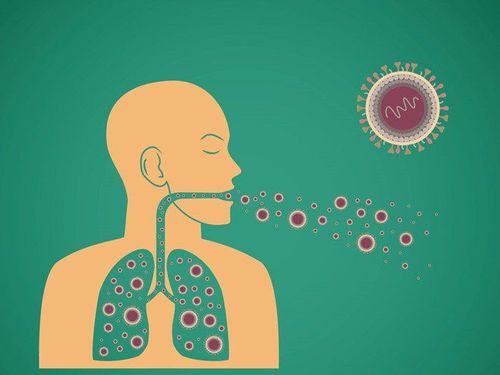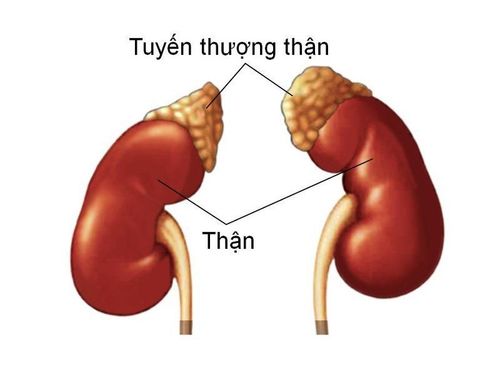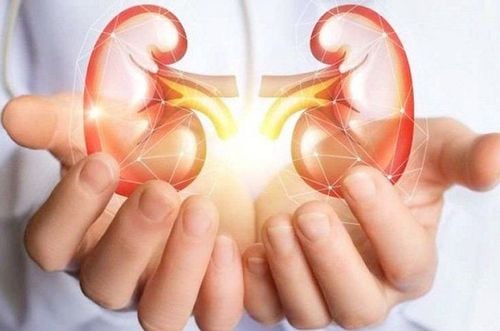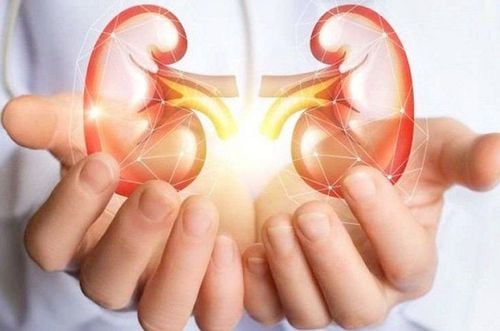This is an automatically translated article.
Addison's disease (adrenal insufficiency) is a disorder of hormones secreted by the adrenal glands, mainly cortisol and aldosterone. The disease can lead to an addisonian crisis leading to life-threatening shock. Therefore, people with addison need to go to the hospital to have their hormone levels checked and adjusted accordingly.1. Overview of Addison's disease
Addison's disease, also known as adrenal insufficiency, is an uncommon disorder that occurs when the body doesn't produce enough of certain hormones. Specifically, in Addison's disease, the adrenal glands, located just above the kidneys, produce too little cortisol and aldosterone.Addison's disease occurs in all age groups and is independent of sex. The disease is potentially life-threatening. The main method of treatment is using hormones to make up for the lack of hormone in the body.
2. What effects does Addison's disease cause?
Addison's disease usually develops slowly over several months. Often, the disease progresses so slowly that symptoms are ignored until an illness or injury occurs that makes symptoms worse. The disease can cause signs and symptoms including:Body fatigue Weight loss and decreased appetite Darker skin color (hyperpigmentation) Low blood pressure, even fainting Salt cravings Low blood sugar ( low blood sugar) Nausea, diarrhea or vomiting (gastrointestinal symptoms) Abdominal pain Muscle or joint pain Irritability Depression or other behavioral changes Hair loss or sexual dysfunction in women Adrenal insufficiency acute (addisonian crisis) Sometimes the signs and symptoms of Addison's disease can come on suddenly. Acute adrenal insufficiency (addisonian crisis) can lead to shock, which is life-threatening. You need to go to the hospital when you experience the following signs and symptoms:
Serious illness Confusion, forgetfulness Pain in the back or legs Severe abdominal pain, vomiting and diarrhea, leading to dehydration Reduced consciousness or delirium If you have an addisonian crisis you will also have: Low blood pressure; High potassium (hyperkalemia) and low sodium (hyponatremia)
See your doctor if you have signs and symptoms characteristic of Addison's disease, such as:
Darkened areas of skin (hyperpigmentation) ) Extreme fatigue Weight loss Gastrointestinal problems such as nausea, vomiting, and abdominal pain Lightheadedness or fainting Salt cravings Muscle or joint pain

Cơ thể mệt mỏi là một trong nhiều triệu chứng của bệnh Addison
3. Complications of Addison's disease
Addisonian crisis is a complication of Addison. If you have been treated for Addison's disease, you may have an Addison crisis as a result of physical stress such as injury, infection, or illness. The adrenal glands normally produce 2 to 3 times as much cortisol in response to physical stress. With adrenal insufficiency, the inability to increase cortisol production under stress can trigger withdrawal symptoms.Addisonian crisis is potentially life-threatening by causing low blood pressure, hypoglycemia, and increased blood potassium levels. People with Addison's disease often have related autoimmune diseases.
4. Causes of Addison's Disease
Addison's disease is caused by damage to the adrenal glands, resulting in not enough of the hormone cortisol and sometimes with or without enough aldosterone. The adrenal glands are part of the endocrine system. They produce hormones for almost every organ and tissue in the body.The adrenal gland consists of two parts. The inner part (medulla) produces adrenaline-like hormones. The outermost layer (cortex) makes a group of hormones called corticosteroids. Corticosteroids include:
Glucocorticoids: Are hormones including cortisol, which affect the body's ability to convert food into energy, play a role in the immune system's inflammatory response, and help the body fight stress. straight (stress). Mineralocorticoids (aldosterone): Are hormones including aldosterone that help maintain the body's sodium and potassium balance to keep blood pressure normal. Androgens: These sex hormones are produced in small amounts by the adrenal glands in both men and women. They enlarge the sex organs in men and affect muscle mass, libido (libido) and feelings of well-being in both men and women.
5. Classification of adrenal insufficiency

Bệnh lao cũng có thể là nguyên nhân gây suy tuyến thượng thận nguyên phát
Other causes of adrenal insufficiency may include:
Tuberculosis Other infections of the adrenal gland Cancer metastasis to the adrenal gland Bleeding into the adrenal gland: In this case, you may having an addisonian crisis without any prior symptoms. 5.2 Secondary adrenal insufficiency The pituitary gland makes a hormone called adrenocorticotropic hormone (ACTH). ACTH stimulates the adrenal cortex to produce its hormones. Benign pituitary tumors, inflammation, and previous pituitary surgery are common causes of not producing enough pituitary hormones.
A decrease in ACTH can lead to a decrease in glucocorticoids and androgens, which are normally produced by the adrenal glands, even though the adrenal glands are not damaged so this is called secondary adrenal insufficiency. Aldosterone production is not affected by the presence of too little of the hormone ACTH.
Most of the symptoms of secondary adrenal insufficiency are similar to those of primary adrenal insufficiency. However, people with secondary adrenal insufficiency do not have hyperpigmentation and are less likely to have severe dehydration or low blood pressure but are more likely to have hypoglycemia.
Temporary secondary adrenal insufficiency is common in people taking corticosteroids (eg, prednisone) to treat chronic conditions such as asthma or arthritis, stopping corticosteroids all at once rather than gradually reducing the dose.
6. Prevention of adrenal insufficiency

Nếu bận bị nôn và không thể uống thuốc, hãy đến bệnh viện để điều trị
Talk to your doctor if you consistently feel tired, weak or lose weight, mentioning a thyroid hormone deficiency adrenal. If you've been diagnosed with Addison's disease, ask your doctor about what to do to relieve symptoms. You may need to learn how to increase your corticosteroid dose. If you are very ill, especially if you are vomiting and cannot take your medicine, go to the hospital for treatment. Some people with Addison's disease worry about serious side effects from hydrocortisone or prednisone. However, if you have Addison's disease, the side effects of high-dose glucocorticoids will not occur, as the prescribed dose will replace the missing amount in the body. You should check with your doctor regularly to make sure the dose is not too high.
Please dial HOTLINE for more information or register for an appointment HERE. Download MyVinmec app to make appointments faster and to manage your bookings easily.













